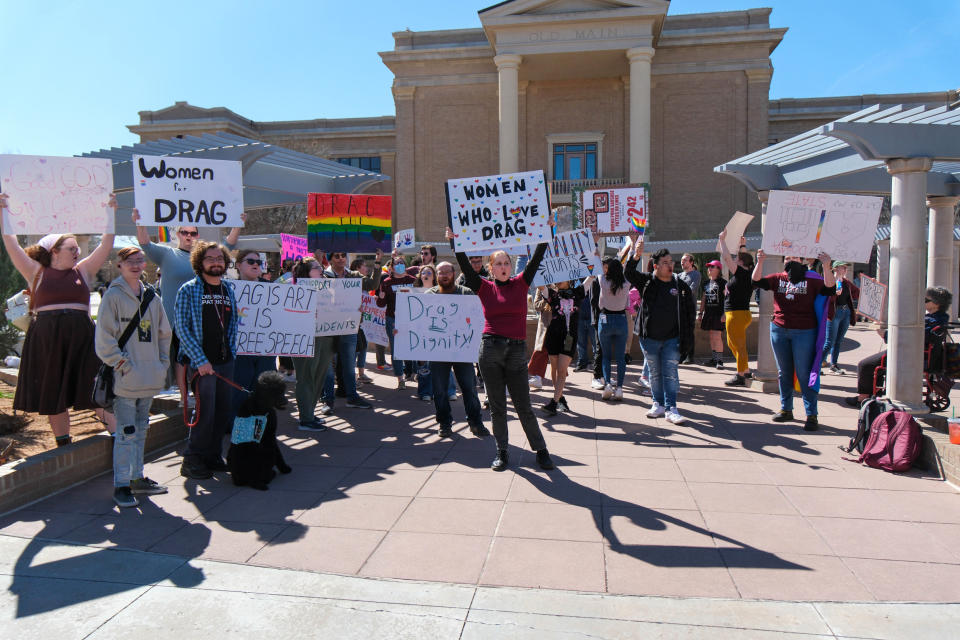Texas university president cancels drag show, comparing art form to blackface

The president of a public university in Texas canceled a student-run drag show on Monday, arguing that the art form is offensive to women and comparing it to blackface.
“Drag shows stereotype women in cartoon-like extremes for the amusement of others and discriminate against womanhood," West Texas A&M University President Walter Wendler said in an email to students, faculty and staff. "Drag shows are derisive, divisive and demoralizing misogyny, not matter the stated intent."
In the email, which was obtained by NBC News, Wendler also states that he similarly "would not support ‘blackface’ performances on our campus, even if told the performance is a form of free speech or intended as humor. It is wrong."
A representative for the university declined to comment, citing "pending litigation."
The event, which was scheduled for later this month, was intended to raise money for The Trevor Project, an LGBTQ youth crisis intervention and suicide prevention organization. In his letter, Wendler urged students to "skip the show" but to still donate to the nonprofit group.
In response to the letter, dozens of students held a protest on the university's campus Tuesday. Some protesters were flanked with rainbow-colored posters that said "Don't drag us down" and "Women who love drag."

West Texas A&M University "is real big on supporting the LGBTQ community,” student Jasrianna Gonzalez told NBC affiliate KAMR of Amarillo. “So, I feel like with President Wendler taking down the show, it kind of hurt some students and contradicts what [the university] is doing,” they said.
A student-led Change.org petition criticizing Wendler's letter and calling for him to reinstate the drag show had garnered over 6,500 signatures as of Wednesday morning.
"Not only is this a gross and abhorrent comparison of two completely different topics, but it is also an extremely distorted and incorrect definition of drag as a culture and form of performance art," the petition said, referring to Wendler's "blackface" analogy.
Not all students were opposed to the show's cancellation.
Kolt Anderson said the university shouldn't allow the drag event because it's "not really professional."
“I know people like me, who think it’s stupid that they’re doing this, and it’s kind of a joke to us," Anderson told KAMR. "A lot of us just see that people are embarrassing the campus as a whole.”
Another student in favor of Wendler's decision, Zack Byrd, used Christianity to justify his opposition to the drag show.
“I’m a Christian myself. I live in the word, and it says that in Leviticus, that they will not enter the kingdom of heaven if they continue to their ways, and I feel bad for them,” Byrd told KAMR. “I want them to be with me as I enter into the into heavens. They’re my brothers and sisters, and they are not doing well. They are going to die. That hurts me, because those are Jesus' kids.”
Drag, a once underground art form that has deep roots with the LGBTQ community, has become a political flashpoint in recent months.
Legislators in at least 16 states — including in Texas — have proposed measures this year that would restrict drag performances, according to an NBC News analysis. The majority of the bills would restrict such performances in front of minors.
Supporters argue that these measures are needed to protect kids from obscene entertainment, while critics say they broadly paint all drag as overtly sexual and unfairly target the LGBTQ community.
This month, Tennessee became the first state to enact such legislation, banning the art form in public and at locations where it can be seen by minors. Performers who violate the law more than once can be charged with a felony and sent to prison for up to six years.
This article was originally published on NBCNews.com

